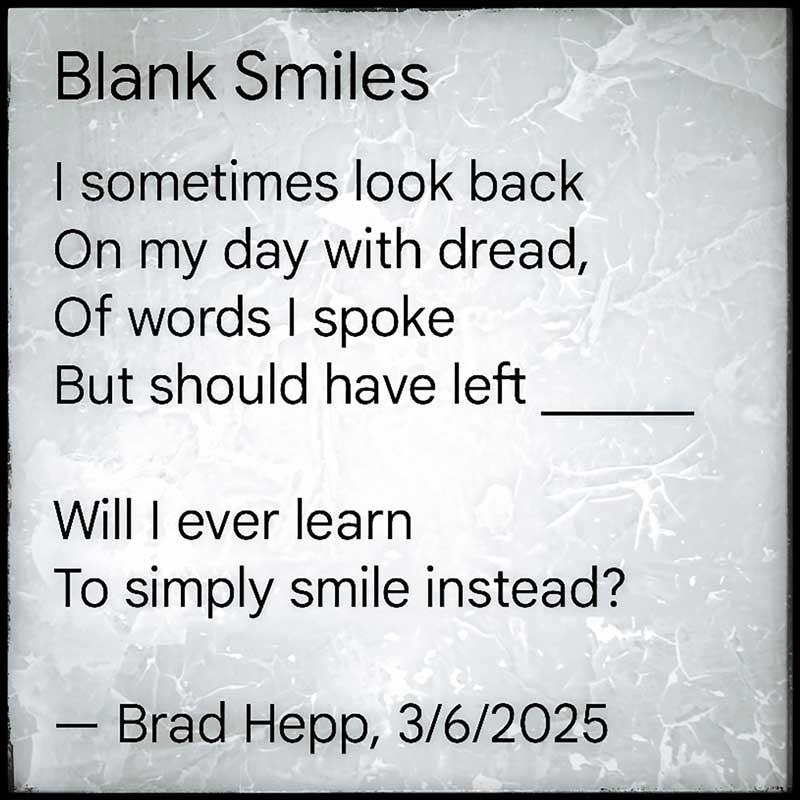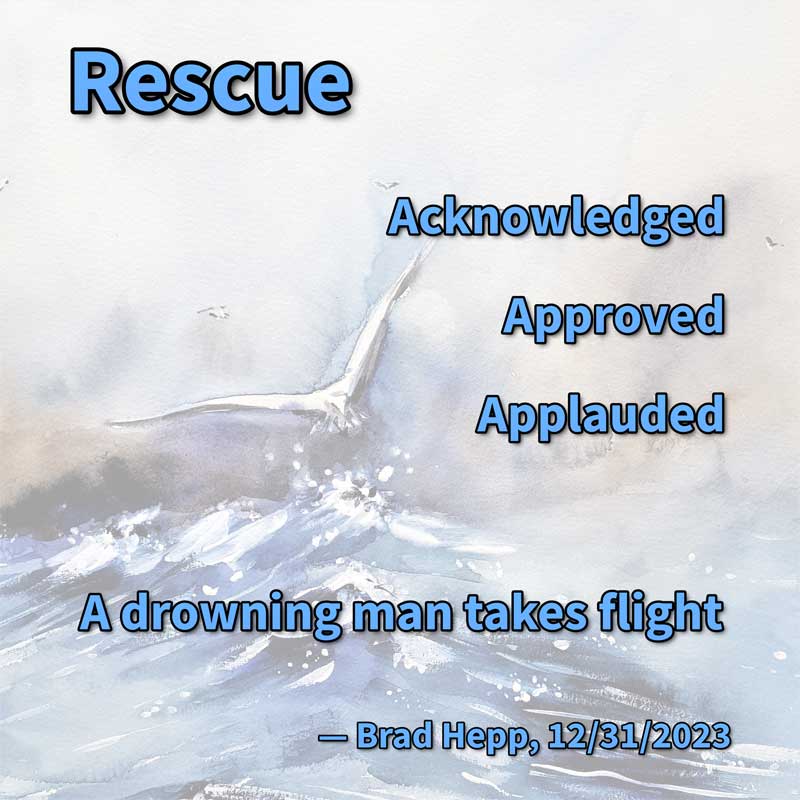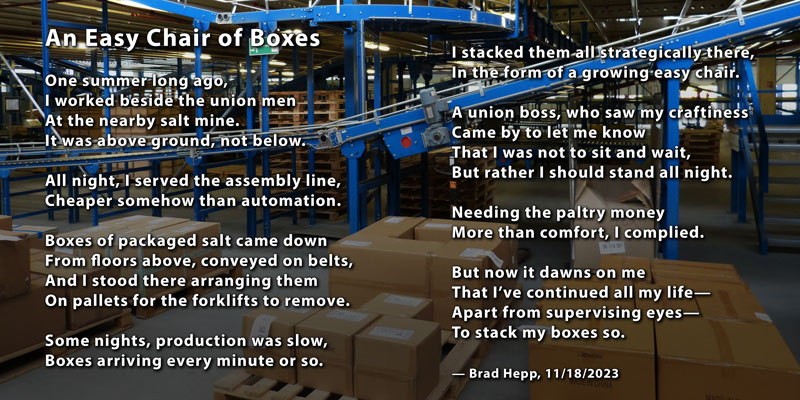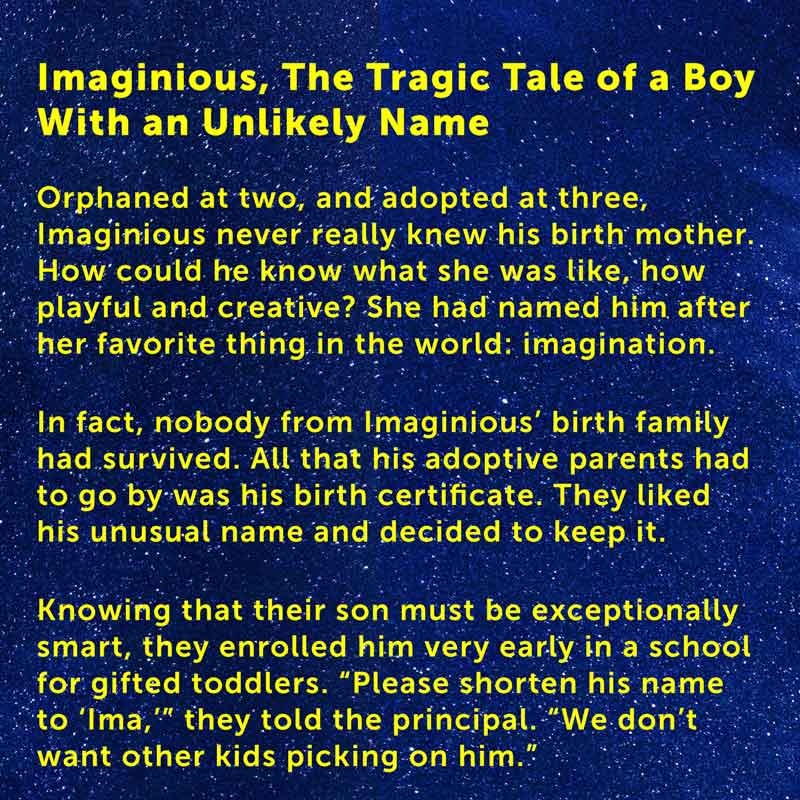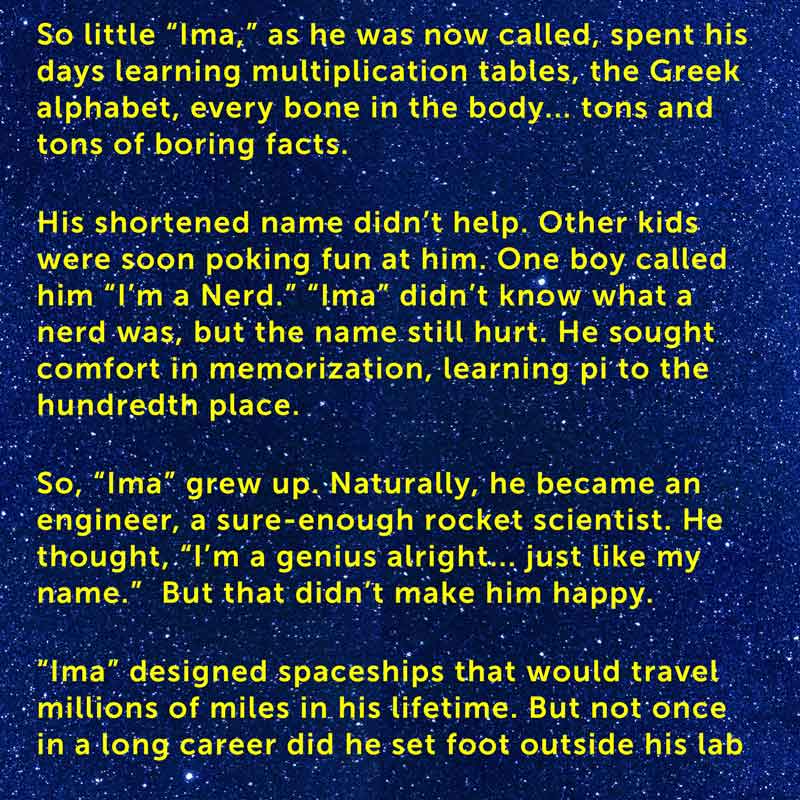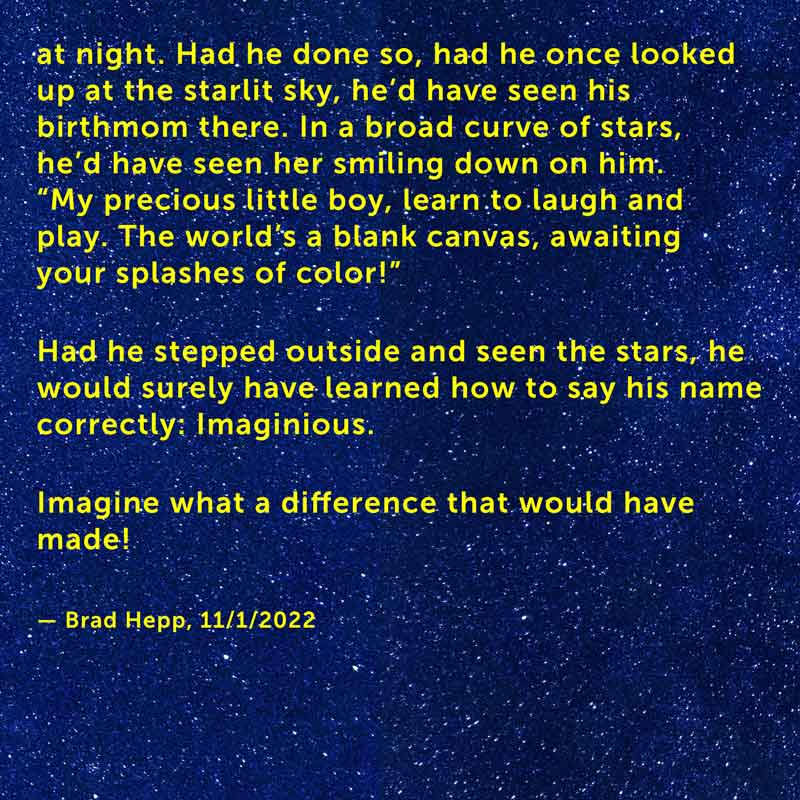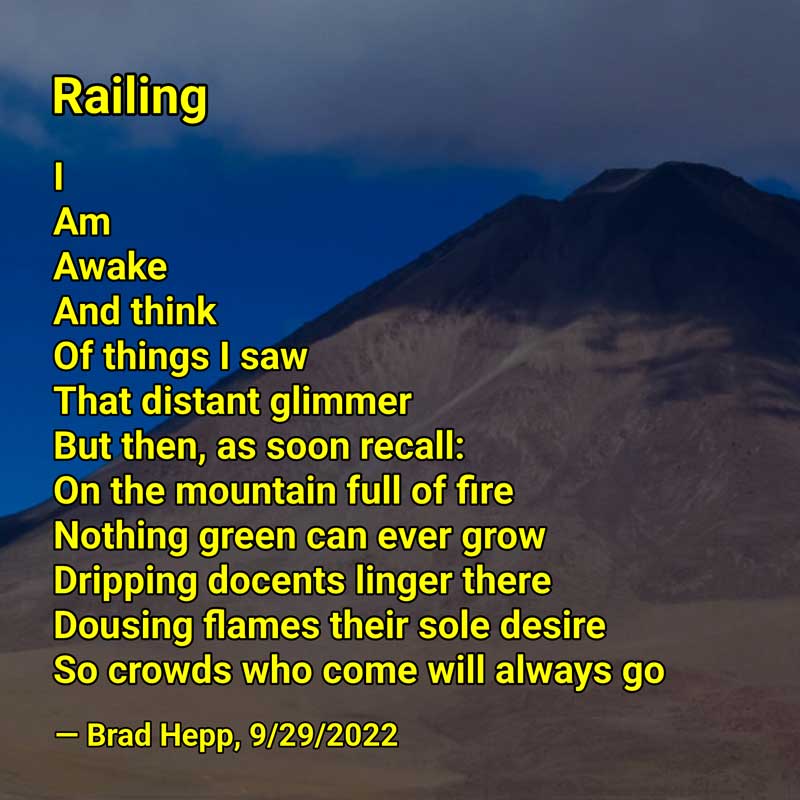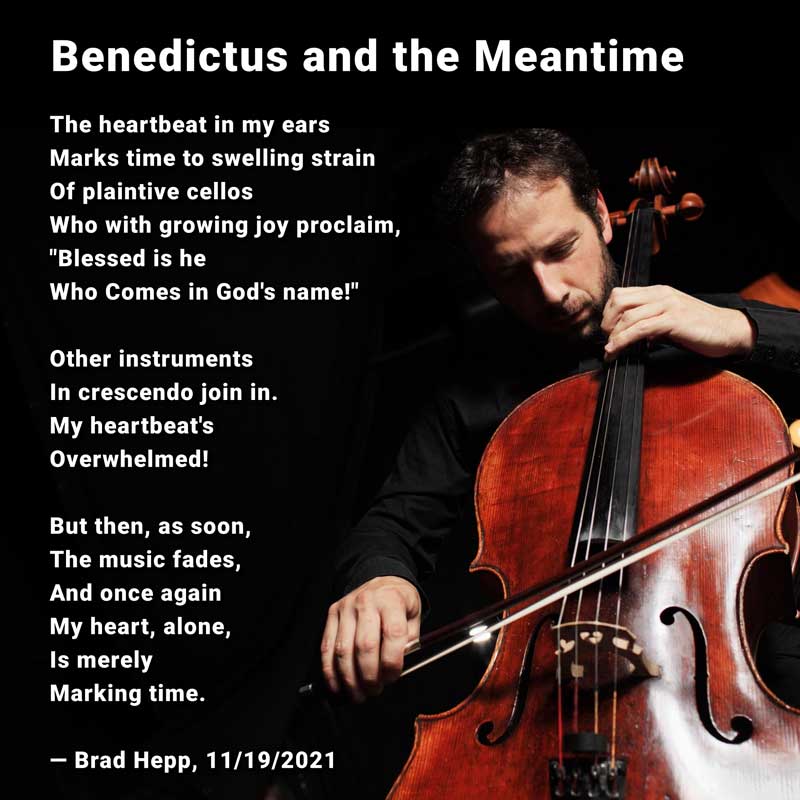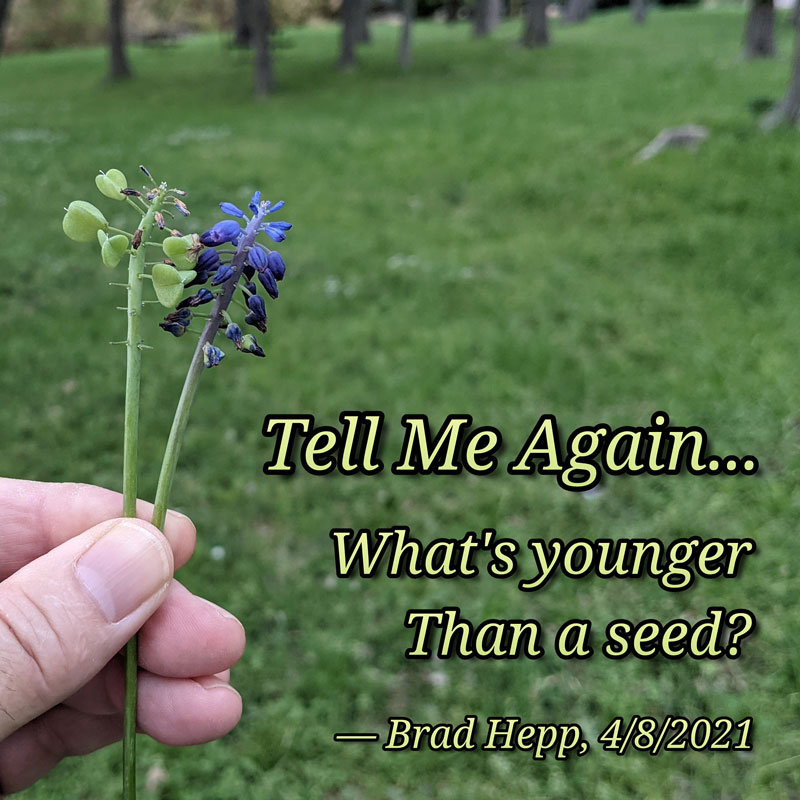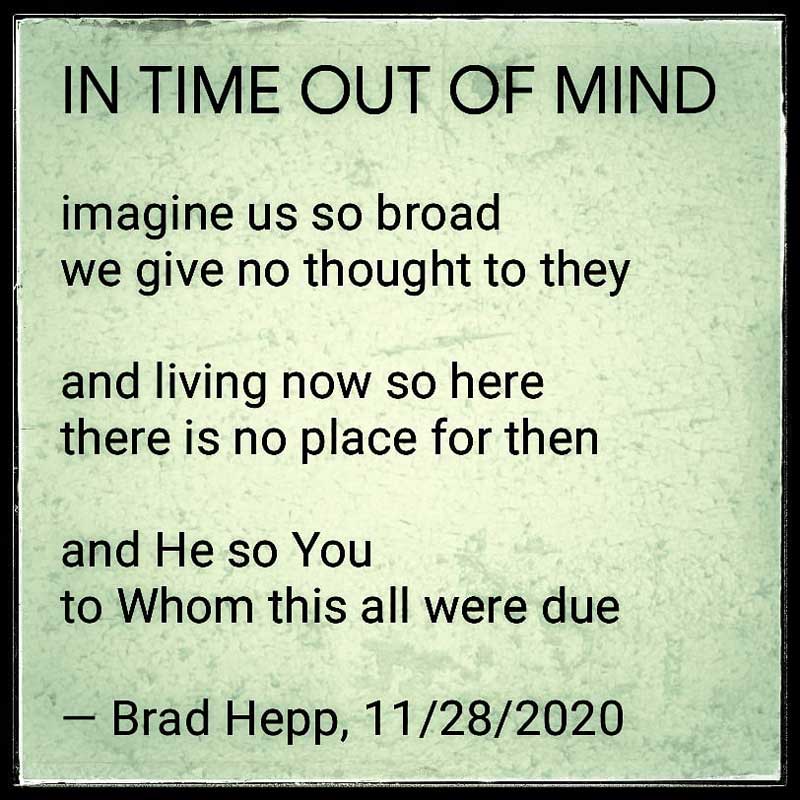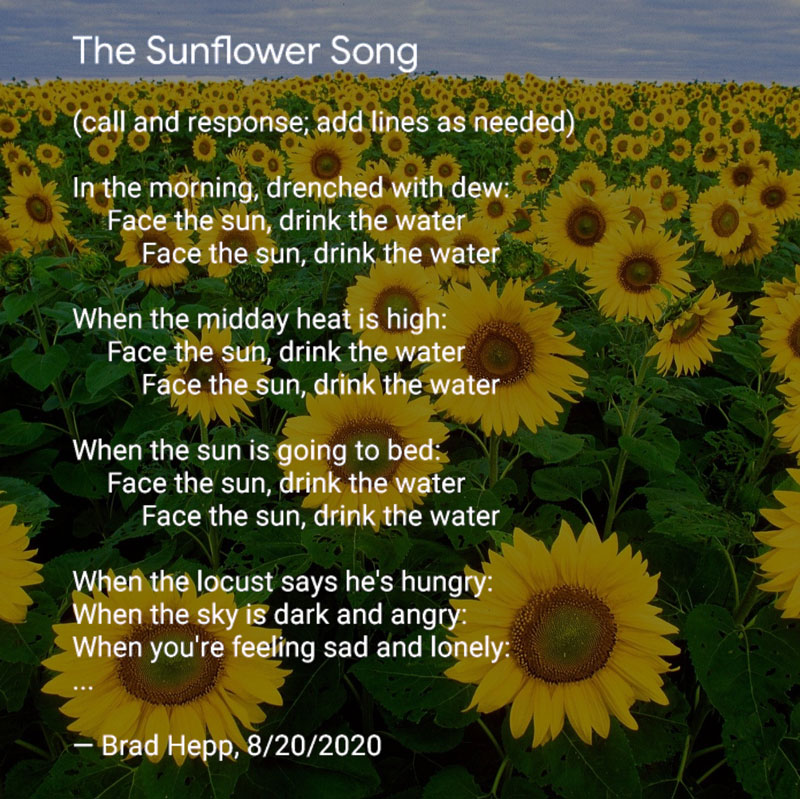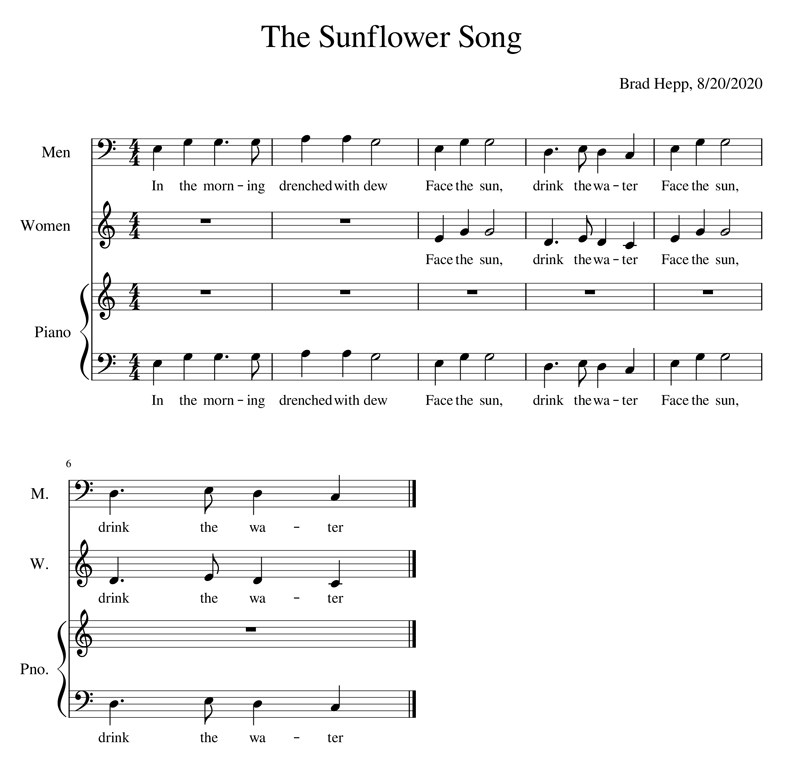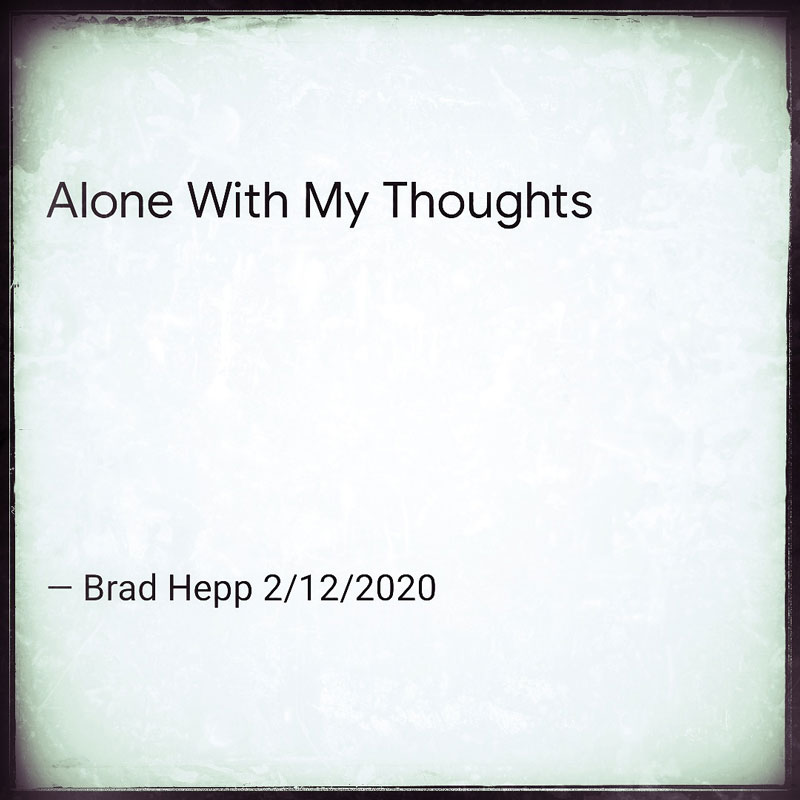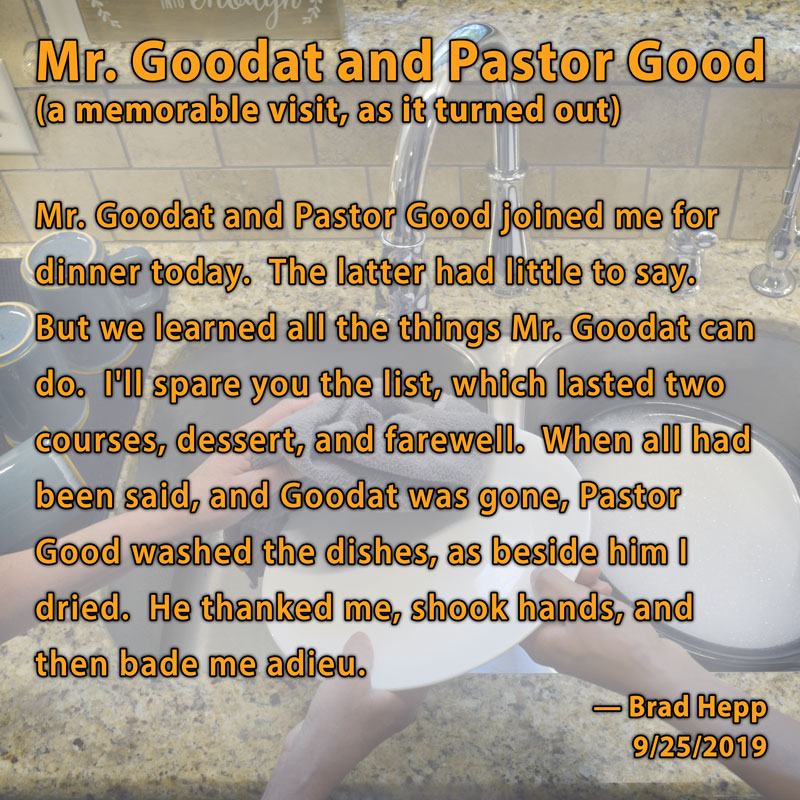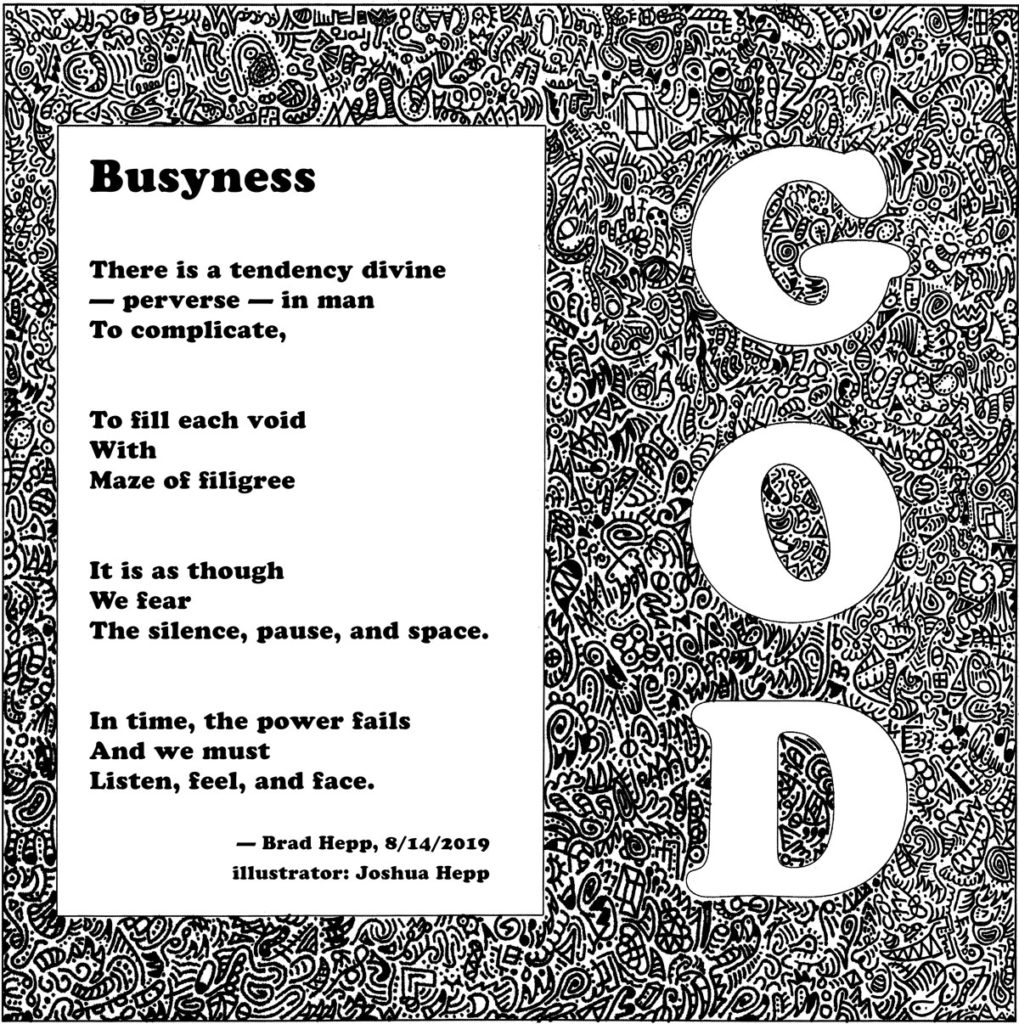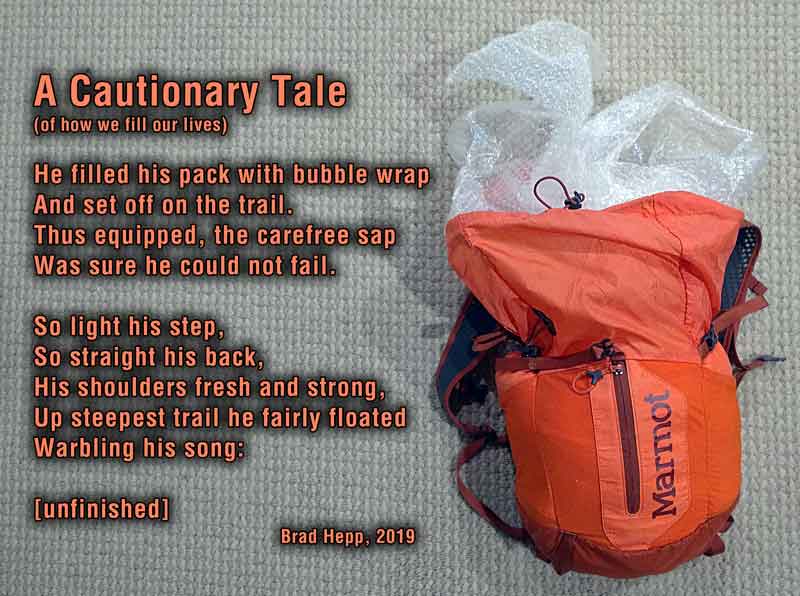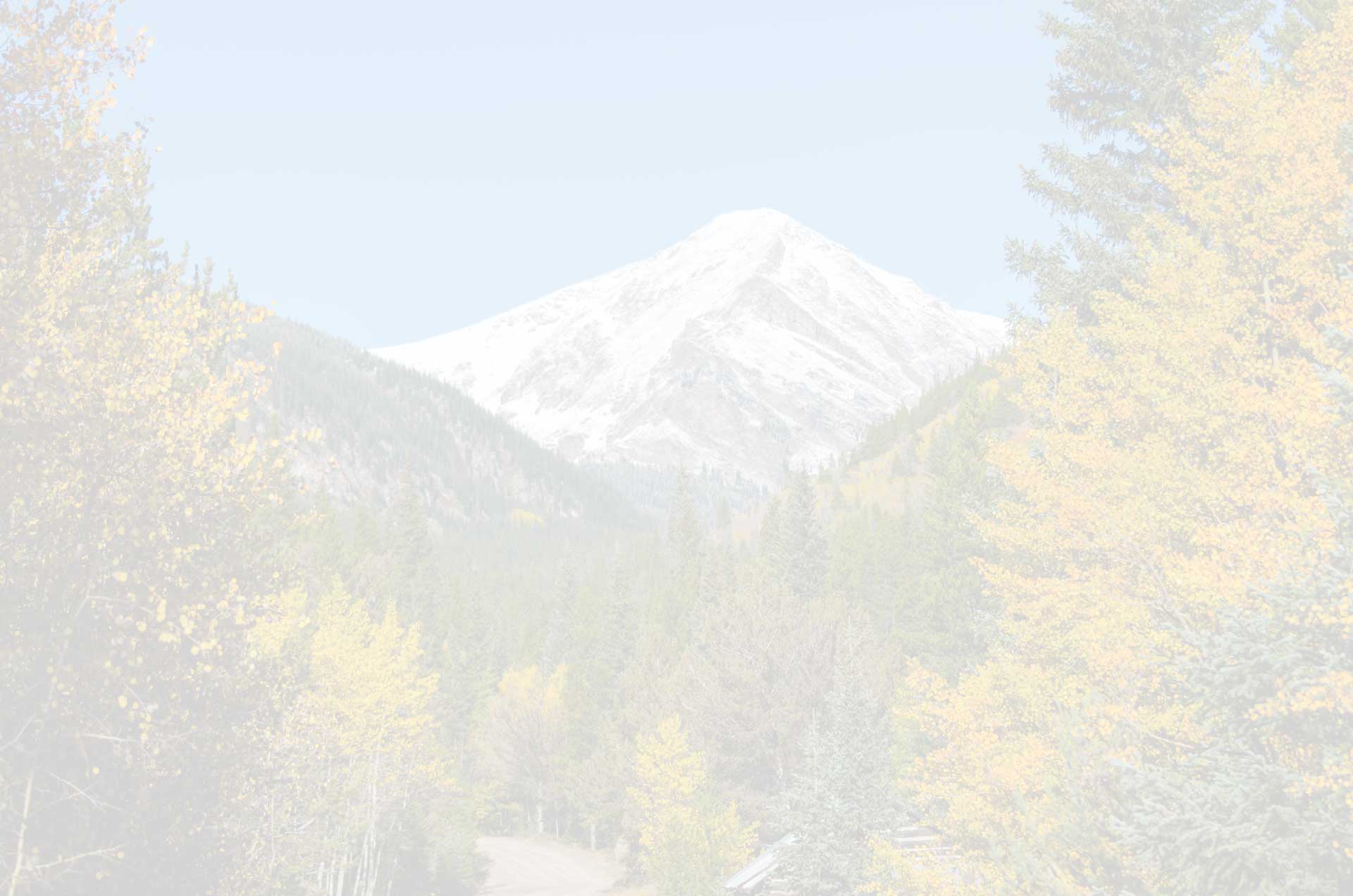(if you are viewing this via email, the website has a recording of this poem and commentary; click the title above)
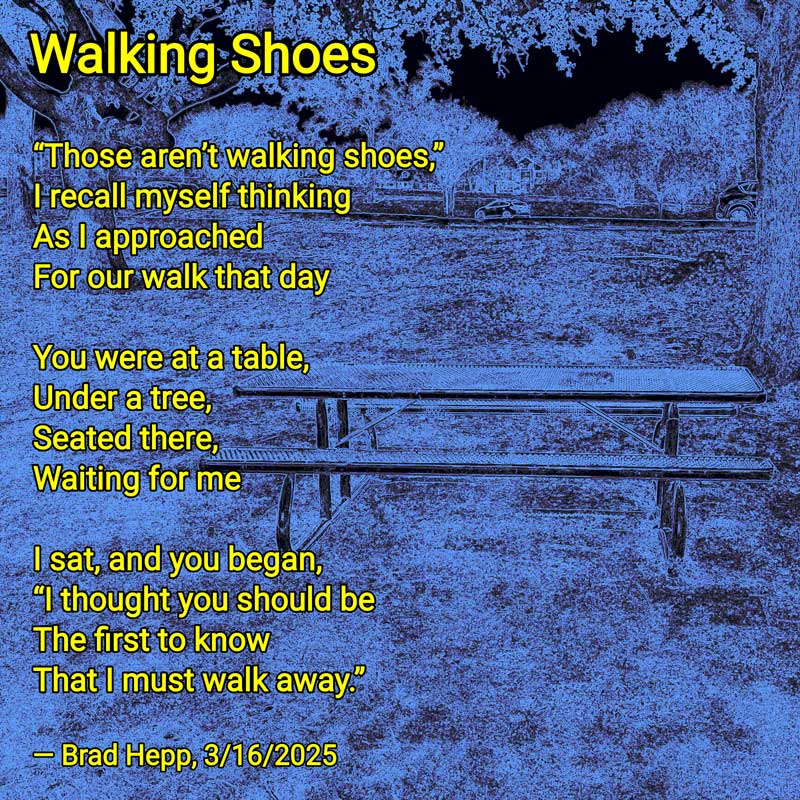
Commentary
I think I should start a new category under Poetry Themes. I’ll call it “Experimental.”
This poem belongs in that category.
Recently, I noticed that specific locations get attached to my memory of significant conversations (see “Entertaining Possibilities“). In today’s poem, I explore how an object gets attached in the same way, in this case, “walking shoes.” There’s a particularly poignant memory I have of a conversation with a friend. He/she had come to the realization that they must leave–“walk away from”–something they loved. We were meeting for a casual stroll, but as I approached our rendezvous point, I could tell from a distance that something was amiss. My friend was wearing dress shoes, not walking shoes.
I set out to write a poem about that memory, not knowing where it was going to go, except that I must guard my friend’s privacy. By the end of the third stanza, I had told all I felt safe telling. Was it enough? Would the reader be upset that I ended so abruptly, and without resolution? I don’t know. I’m still thinking about that. Comment below, if you have an opinion.
Here’s another question that this poem raises for me: Does the mind routinely intermingle literal and figurative meanings (in this case, two uses of “walk”)?
Children explore their world and the questions it raises by playing. I’m “all grown up,” but I still explore my world by playing in a sandbox called poetry.
_________
